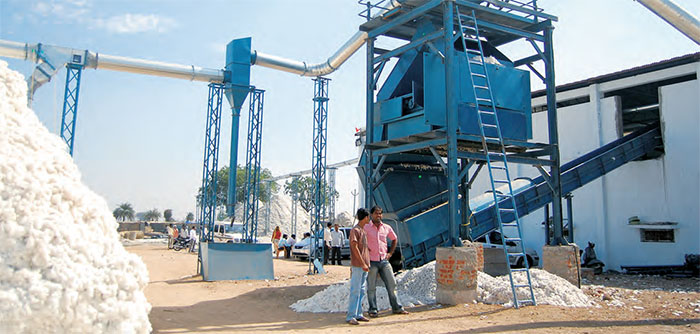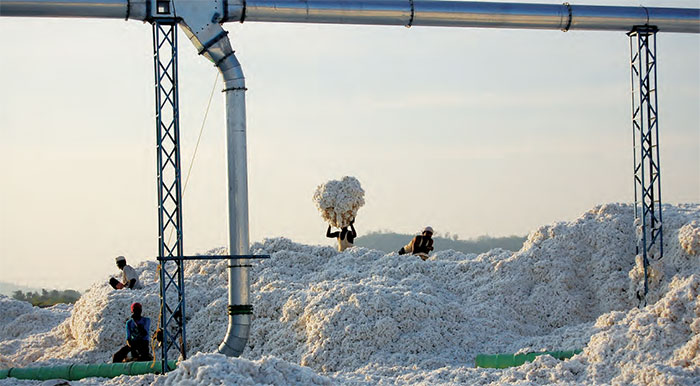A Unique Farmer-Factory Partnership

The ZAMEEN ALOK partnership has developed a new model of sustainable cotton trading. A model which establishes a direct link between farmers and consumers and that pioneers a unique ethical supply chain, leading the textile industry into a new era in Fairtrade cotton sourcing.
Zameen farmers grow premium quality Fairtrade organic cotton and Alok ethically manufactures outstanding products competitively so your business can sell cotton goods that don’t cost the Earth.
How it works
Is it possible for the textile industry to guarantee a fair deal for farmers and engage consumers about the origins of their product without pricing itself out of the market? And can this be mainstreamed? The long and complex cotton textile supply chain can include up to 10 steps - seed production, cotton growing, ginning, spinning, weaving / knitting, dying, finishing CMT (and often embellishment and various trading steps) - each with different sectors, norms, cultures and costs. Zameen’s mission is to ensure that the direct contact between farmer and shopper does not get lost along the way.
To achieve this aim Zameen required a production partner as committed to the ideals of sustainable production and farmer empowerment as Zameen, and crucially, a partner trusted by industry leaders to deliver consistent quality products on time. Zameen found this in Alok Industries, one of the largest textile mills in Asia. Alok demonstrated its commitment to the project and its values by undertaking to buy all Zameen’s cotton for three years. This extraordinary move creates a new sense of security for the farmers. It means they can plan for the future instead of living hand to mouth. What’s more, Alok are making advance payments on part of the crop, freeing the farmers from taking on high risk debt.
Alok keeps costs down by adding the social premium at the end of the chain rather than at the beginning. This removes the problem of multiplying margins at different points in the chain and ensures a competitively priced end product for the consumer without impacting the Fairtrade benefits for the farmer. Brands can trace the actual premium to individual farmer projects and help consumers do the same, building invaluable trust.
Did you know?
For the year 2008/09 Zameen on average sold its Fairtrade lint at just $0.66 per kg more than conventional lint. This additional cost also equates to the price differential of your end cotton product.
A standard t-shirt consumes approximately 330 grams of fibre, making the additional cost of a Zameen t-shirt approximately $0.22 ($0.40 for Fairtrade and organic).
If a brand so chooses, consumers can even trace this sum back to the exact village where the Fairtrade and organic projects are being implemented.
Alok has an impeccable track record on sustainability and has invested in its own fabric recycling scheme and an action plan for conserving natural resources. Alok also offers its employees a safe working environment with opportunities for growth, including a training programme for tribal women excluded from mainstream occupations. Taking part in the Ethical Trading Initiative (ETI) ensures all management teams are focused on prevention and control of any exploitation and abuse within the factories.
Alok has already gained valuable experience working with Fairtrade cotton farmers in Africa to deliver large volumes to leading US brand Victoria’s Secret. Back home in India, Alok is keen to be part of the solution to the crisis of farmer suicides in Vidarbha. Ensuring the farmers receive a fair price and supporting their conversion to organic is consistent with Alok’s commitment to its ‘triple bottom line’ of people, planet and profit.
And they’ve really put their money where their mouth is.

